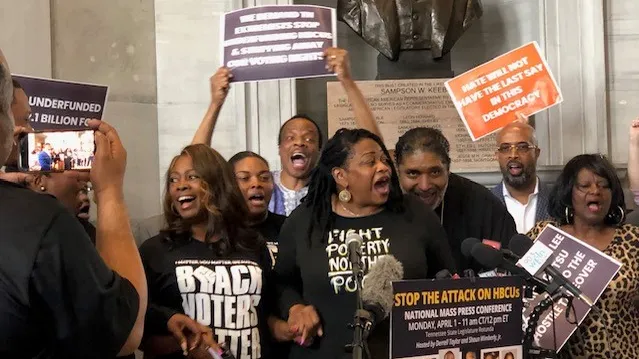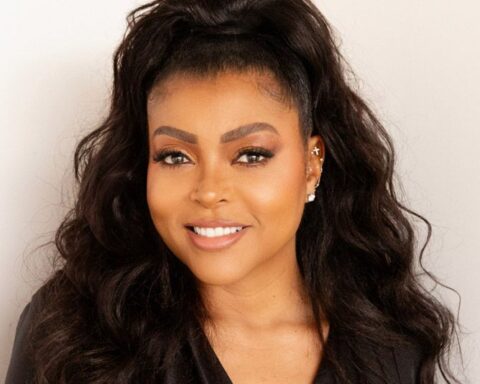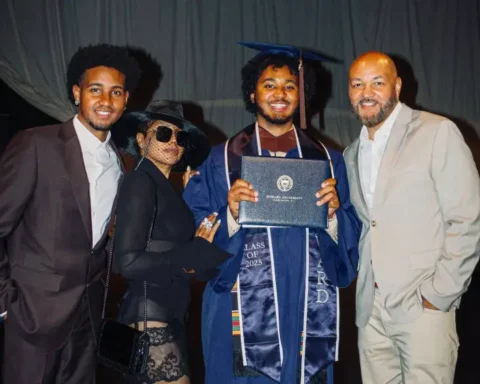By Lynn Norment
As we move through February – Black History Month – with colorful African garb, cultural traditions, and joyous celebrations, my thoughts repeatedly focus on the importance of Black colleges and universities to our culture, our country and our future.
With political turbulence rolling through our government and our nation, Black colleges are especially on my heart and my mind.
Threats to dismantle the U.S. Department of Education leave me wondering how such a move would impact our local schools but also our colleges and universities, especially our HBCUs (Historically Black Colleges and Universities).
As we watch the political moves play out, let’s keep in mind the value of our HBCUs, the institutions of higher learning with the mission of educating African Americans.
HBCUs have billion-dollar economic impact and educate national leaders
HBCUs were first established to combat segregation at the nation’s colleges. Black students were not allowed to enroll at most colleges across the country.
Our leaders understood the need to educate our people and worked with religious leaders, donors, humanitarians, the Freedmen’s Bureau (after the Civil War) and the government to establish HBCUs.
Founded in 1837, Cheyney University of Pennsylvania was the first HBCU. Other private HBCUs established before the Civil War include the University of the District of Columbia (1851) and Lincoln University (1854).
Wilberforce University (1856) also was established before the Civil War. Most HBCU’s were founded in the South after the war.
Today, there are 101 HBCUs with more than 228,000 students enrolled. About 9% of all Black college students in the U.S. are enrolled at HBCUs, and the South is home to about 90% of them.
Today, HBCUs annually contribute $14.8 billion in economic impact, equivalent to ranking in the top 200 on the Fortune 500 list of America’s largest corporations.
HBCUs in Tennessee – LeMoyne-Owen, Lane, Tennessee State, Fisk, Meharry Medical College and American Baptist College and Knoxville College – generate $992.1 million in economic impact, 7,087 jobs; 2021 graduates can expect total lifetime earnings of $6.7 billion.
In Mississippi, HBCUs generate $695.3 million in total economic impact, and HBCUs in Arkansas generate $191 million in total economic impact.
HBCUs have educated many of our nation’s Black leaders, including our first female vice president, Kamala Harris (Howard University), billionaire media mogul Oprah Winfrey (Tennessee State), and the greatest civil rights leader of our time, Dr. Martin Luther King Jr. (Morehouse College).
United Negro College Fund continues to work to develop students at HBCUs
The United Negro College Fund, founded in 1944, is the nation’s largest and perhaps the most effective minority education organization.
The UNCF supports HBCU students’ education and development through scholarships and programs. The fund has raised more than $6 billion and helped more than 600,000 students not just attend college, “but thrive, graduate and become leaders of our nation.”
Each year, UNCF supports more than 50,000 students at 1,100 colleges and universities across the country. It also annually awards more than 12,000 scholarships worth $70 million. In addition, UNCF offers more than 400 programs, including internships, fellowships, mentoring, summer enrichment, and curriculum and faculty development programs.
Recently in Memphis, UNCF hosted its annual Leadership Conference and Alumni Summit that brought together more than 500 HBCU students, faculty, leaders, alumni, and funding experts.
The UNCF National Alumni and Pre-Alumni councils hosted several days of professional development workshops, resumé preps and reviews, a career fair, and coronation of Miss National UNCF. The students continued the HBCU legacy of community service by working with Memphis youngsters.
“Participants had the chance to demonstrate their commitment to education, both now and in the future,” UNCF National Alumni Council President Michael J. Cleveland said of the conference.
While the history and support (and dazzling marching bands) of HBCUs are important, we also need to look to the future of these unique institutions and make sure they continue to educate and enhance the lives of so many of our Black youth.
While there are some students who may have had difficulty getting accepted at other colleges, many who attend HBCUs choose to study there because they want the special experience that is not available at other institutions.
Top Black students have a choice and several prefer HBCUs
My niece had Harvard, Columbia and other Ivy League schools encouraging her to apply.
She chose to attend Xavier University in New Orleans, the only Catholic HBCU. She had done her research and knew Xavier was a nationally recognized leader in STEM and health sciences, producing the most African American students who graduate from medical school each year.
Xavier’s College of Pharmacy is among the top producers of African American pharmacists. My niece went on to medical school and has no regrets about choosing Xavier.
How the current administration feels about HBCUs is not clear, though President Trump expressed his support during his first term.
The Department of Education has long supported the UNCF and HBCUs, but now Trump plans to dismantle that department that oversees key programs such as Pell Grants and Title I funding.
These schools as well as those charged with providing education to Hispanics and native Americans have been in a state of uncertainty since Trump took office. The federal funding freeze that was blocked by a federal judge would have been a blow to many of the institutions, and some are concerned they will be caught up in the DEI (diversity, equity and inclusion) purge.
The Trump administration already has cancelled nearly $900 million in federal education research contracts.
Don’t forget the slogan: ‘A mind is a terrible thing to waste’
Despite the challenges and uncertainty, HBCUs must continue to be funded and supported to make sure they survive and thrive to serve our young people. These institutions are valuable and greatly needed to empower future generations.
During a time when so many ask the question, “Do we still need Black colleges?” Dr. Michael Lomax, CEO of UNCF, clearly responds, “Yes!”
“For more than 100 years, HBCU’s have been educating minorities, giving them economic opportunities and instilling great values,” Lomax says. “Not only have they consistently produced leaders in their communities and across the nation, but HBCUs today are consistently and affordably producing the leaders of the future.” As the renowned and iconic UNCF slogan emphasizes, “A mind is a terrible thing to waste.”





